60 years of paradox and failure
Updated: 2013-07-26 08:35
By Ra Jong-yil (China Daily)
|
||||||||
The first hot war of the Cold War ended on July 27, 1953. Guns, big and small, which had shattered the land of morning calm for three years fell silent. Korea lay in waste, ruins not only of towns, villages, buildings and factories, but also of minds. It was a wasteland of morals, age-old traditions of human relations, of civility, of warmth, of emotions with which people had been used to treating the natural as well as the human world; it was humanity in chaos.
But the greatest ruin was in the realm of politics. In the aftermath of the appalling violence, in the lingering memory of struggle for survival, there was hardly room for the art of politics through which people could still live together with different, or even conflicting ideas and interests. In a sense, the greatest casualty of the war was politics.
The foreign soldiers who had crowded into Korea were relieved to have been finally liberated from the hazards and toils of war. They were looking forward to going home to their families and friends. But the Koreans themselves were still glowering at one another, their compatriots on the other side, with arms in hand, hatred in the eyes. Far from learning a lesson from their catastrophic experiences in the war, they were even ready to start it all over again.
When the war ended after three years of destruction, Korea remained divided. The only change was that the line dividing the country, the 38th Parallel drawn by an American officer at the end of the Pacific War, had been replaced by the Demilitarized Zone, reflecting the power of the two camps that divided the world at that time.
The greatest enigma of the Korean War was that there was no Korean to take the responsibility of its catastrophic consequences. There were only "heroes" who claimed credit and got it too.
Kim Il-sung had two main objectives before the war: Unification of Korea and building a socialist society throughout the country. The outcome was exactly the opposite of what he intended. The division of the country was more firmly in place, more so in the minds of the people, when the war was over. The American troops, that had been withdrawn, returned in great force and have remained ever since as a semi-permanent factor on the Korean Peninsula not only in the military but also in many other areas of influence.
The war strengthened the Rhee Syngman government, which had been ridden with innumerable problems, to the extent of giving it a new life. The progressive elements that had earlier survived the repression of the rightist regime in the ROK were decimated amid the destructions.
But the eclipse of progressive politics in the ROK was not in the physical sense alone. Ideologically and politically, progressive politics had to wait nearly half a century - passing through trials and tribulations - to find its place in the ROK, because people had grown nearly allergic to anything sounding mildly progressive, let alone leftist, because of the war. This became a good political resource to exploit for the authoritarian regime for a long time.
Rhee, on his part, did not admit, let alone take responsibility, for his failures. Despite being aware of the vast superiority of the Democratic People's Republic of Korea's military, he insisted the country could be unified only through military means. People in responsible positions in his government even bragged about making an easy game of the DPRK in case of war.
When the invasion came, the Rhee government assured the people that everything was all right. He said they were beating back the DPRK army and even advancing to the north beyond the 38th Parallel, only to flee Seoul in secret and leave its residents to suffer the harrowing experience of death, destruction and deprivation. The destruction of life and property went on for three years even behind the battle lines.
In the 60 years of armistice, we have not seen anybody on either side of Korea take responsibility for the war and its aftermath. Everybody has been pointing the finger at others. The war is still going on behind the scene in clandestine operations and in exchange of words. The past 60 years have been a history of failure and paradox. Is it because there have only been heroes and none to take the responsibility?
The author is a distinguished professor in the International Division of Hanyang University, the Republic of Korea.
(China Daily USA 07/26/2013 page16)
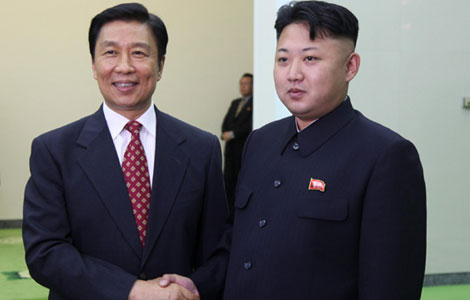
 Top DPRK leader meets Chinese vice-president
Top DPRK leader meets Chinese vice-president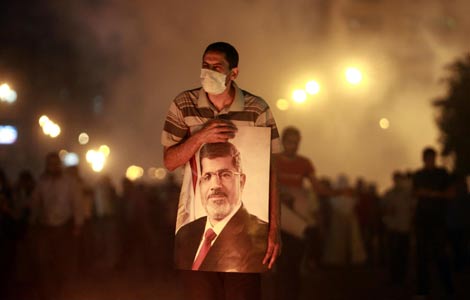
 US does not plan decision on Egypt coup
US does not plan decision on Egypt coup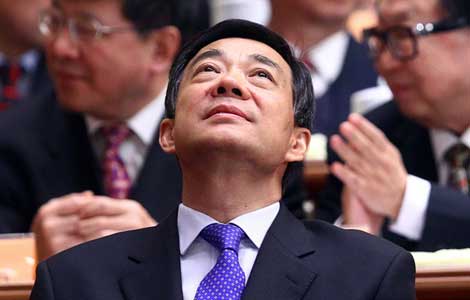
 Bo Xilai indicted for corruption
Bo Xilai indicted for corruption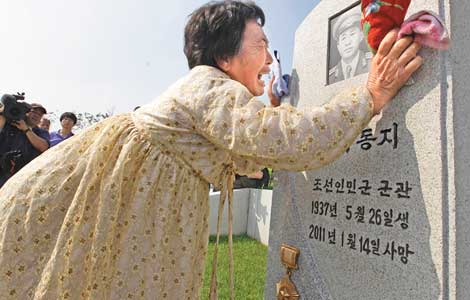
 Korean War veterans return to peninsula
Korean War veterans return to peninsula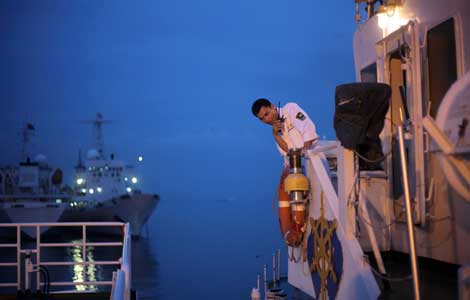
 Tourist safety a priority in S China Sea
Tourist safety a priority in S China Sea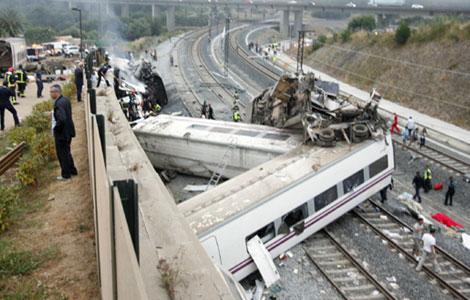
 Death toll in Spain train crash rises to 77
Death toll in Spain train crash rises to 77
 Royal baby named George Alexander Louis
Royal baby named George Alexander Louis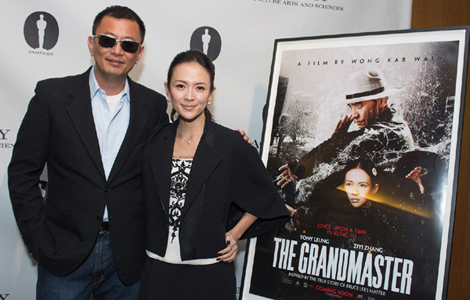
 'The Grandmaster' takes center stage
'The Grandmaster' takes center stage
Most Viewed
Editor's Picks

|

|

|

|

|

|
Today's Top News
Scholars provide a tour 'around the world'
GM says weakness in Asia leads to profit drop
Syrian rebels ask Kerry to send US arms quickly
Flights over sea 'routine training'
US does not plan decision on Egypt coup
Congress approves NSA spying program
Japanese PM unlikely to visit Yasukuni Shrine
Girl, 2, thrown to ground; suspect detained
US Weekly

|

|







